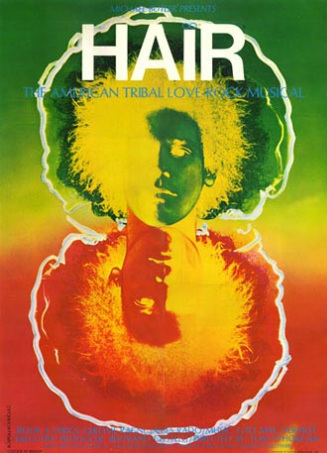He was a French Jewish Marxist in the aftermath of World War II, with a vision of utopian communities spread like seashells across the beaches of the world.
But reality has never been kind to the visions of Jewish Marxists, most notably Karl Marx himself.
So Gilbert Trigano’s vision of Paradise, which came to be known as Club Med, has endured a long and tortured history, not unlike God’s vision of Paradise.
It began on the island of Majorca, across the blue water from the smoking ruins of Europe, as a sanctuary for Holocaust survivors. It was a return to the idea of the Noble Savage: an antidote for civilization, as the tagline would eventually promise. A natural Paradise freed from money, clocks, commercialism and all the other impediments to a life of unfettered joy and sensuality, as expounded by visionaries from Rousseau to Hugh Hefner.
Club Med would be Paradise with a French twist. Food would be exquisite. Wine bottles bottomless. And rather than supervised by resort employees, the place would be a crazy summer camp for grownups, run by gentils organisateurs or GO’s. The wild, handsome bunch of counselors and sun-baked adonises famous most especially to a generation of single women in the 70’s and 80’s. This was to be not just a return to primal paradise. This was la vie fou, the crazy life, French-style: sun, sand, and sea mixed with clowns and circuses and costumed folderol and nutty group singalongs.
The payment, of course was luxury. And for a generation or two of young sensual travelers, summer camp with only nature’s amenities was fine. But people grow up, and demand comfort. And those who enjoy sex on the beach eventually have to cope with the results of sex on the beach.
So Club Med began to target families, the first of many marketing evolutions designed to counter-act a long, downward slide. The problem was inherent in the French soul of Club Med. They were very good at la vie fou. They were not so good at la vie commercial. Indifferent to basic customer service, and flabby in their expansion ambitions, they overbuilt with clubs stretching from Vietnam to Bulgaria to Tahiti, and the money losses flowing like wine. More efficient and disciplined “Anglo Saxon” marketers co-opted the concept, and began offering cheap, all-inclusive beach vacations. Club Med’s visionary DNA evaporated when fighting it out on the travel pages in price-off ads. They had become just another resort.
Further compounding the problem was that in the case of the Triganos, the apple fell far from the tree indeed. When Gilbert’s pudgy, laconic son Serge ascended to the reins of the empire, the downhill slide only intensified.
Serge and Club Med became a notorious nemesis to the advertising world, firing their agencies with the insouciance you flick used Gauloises to the gutter. Almost yearly, they would turn a half a dozen more agencies upside down, as ever new teams of desperate advertising people wooed the brand in crazed, uncompensated pitches. I was personally witness to more than one, eventually being on the winning side and having the opportunity to pen their new tagline, of which I am not especially proud: “Club Med. Life as it should be.” At these pitches, Serge Trigano would sit bored and distracted, puffing on a cigar and delivering for the thousandth time the French grimace of boredom and resignation, as if to say: “I have heard it all, and you are telling me nothing new.”
Eventually, the son of the visionary was tossed out on his derriere, and the head of Disney Paris was installed to bring a business rigor to the fading family empire.
Today, the Wall Street Journal reported Club Med losses of $31 million in the first half of this year alone. And a major investor, Bernard Tapie, is carrying on a public feud with Club Med’s chief executive, the son of former French Prime Minister Giscard d’Estaing.
Gilbert Trigano once said: “Deep within us all is a nostalgia for the lost community of our ancestors.”
The nostalgia remains.
But reality has never been kind to the visions of Jewish Marxists, most notably Karl Marx himself.
So Gilbert Trigano’s vision of Paradise, which came to be known as Club Med, has endured a long and tortured history, not unlike God’s vision of Paradise.
It began on the island of Majorca, across the blue water from the smoking ruins of Europe, as a sanctuary for Holocaust survivors. It was a return to the idea of the Noble Savage: an antidote for civilization, as the tagline would eventually promise. A natural Paradise freed from money, clocks, commercialism and all the other impediments to a life of unfettered joy and sensuality, as expounded by visionaries from Rousseau to Hugh Hefner.
Club Med would be Paradise with a French twist. Food would be exquisite. Wine bottles bottomless. And rather than supervised by resort employees, the place would be a crazy summer camp for grownups, run by gentils organisateurs or GO’s. The wild, handsome bunch of counselors and sun-baked adonises famous most especially to a generation of single women in the 70’s and 80’s. This was to be not just a return to primal paradise. This was la vie fou, the crazy life, French-style: sun, sand, and sea mixed with clowns and circuses and costumed folderol and nutty group singalongs.
The payment, of course was luxury. And for a generation or two of young sensual travelers, summer camp with only nature’s amenities was fine. But people grow up, and demand comfort. And those who enjoy sex on the beach eventually have to cope with the results of sex on the beach.
So Club Med began to target families, the first of many marketing evolutions designed to counter-act a long, downward slide. The problem was inherent in the French soul of Club Med. They were very good at la vie fou. They were not so good at la vie commercial. Indifferent to basic customer service, and flabby in their expansion ambitions, they overbuilt with clubs stretching from Vietnam to Bulgaria to Tahiti, and the money losses flowing like wine. More efficient and disciplined “Anglo Saxon” marketers co-opted the concept, and began offering cheap, all-inclusive beach vacations. Club Med’s visionary DNA evaporated when fighting it out on the travel pages in price-off ads. They had become just another resort.
Further compounding the problem was that in the case of the Triganos, the apple fell far from the tree indeed. When Gilbert’s pudgy, laconic son Serge ascended to the reins of the empire, the downhill slide only intensified.
Serge and Club Med became a notorious nemesis to the advertising world, firing their agencies with the insouciance you flick used Gauloises to the gutter. Almost yearly, they would turn a half a dozen more agencies upside down, as ever new teams of desperate advertising people wooed the brand in crazed, uncompensated pitches. I was personally witness to more than one, eventually being on the winning side and having the opportunity to pen their new tagline, of which I am not especially proud: “Club Med. Life as it should be.” At these pitches, Serge Trigano would sit bored and distracted, puffing on a cigar and delivering for the thousandth time the French grimace of boredom and resignation, as if to say: “I have heard it all, and you are telling me nothing new.”
Eventually, the son of the visionary was tossed out on his derriere, and the head of Disney Paris was installed to bring a business rigor to the fading family empire.
Today, the Wall Street Journal reported Club Med losses of $31 million in the first half of this year alone. And a major investor, Bernard Tapie, is carrying on a public feud with Club Med’s chief executive, the son of former French Prime Minister Giscard d’Estaing.
Gilbert Trigano once said: “Deep within us all is a nostalgia for the lost community of our ancestors.”
The nostalgia remains.



 RSS Feed
RSS Feed